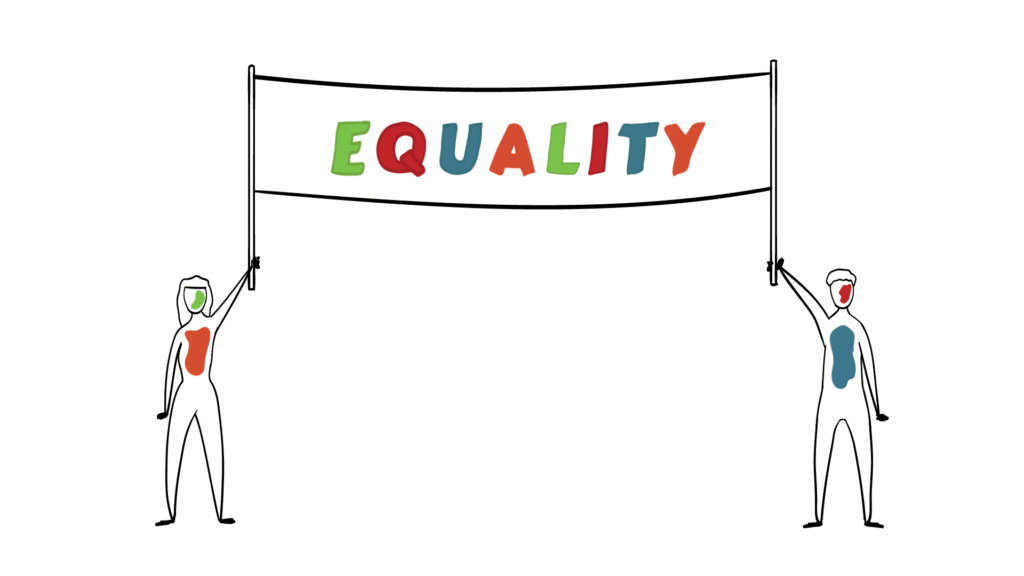Gender Issues Amidst The Pandemic

The Covid-19 pandemic is considered to be one of the greatest historical events ever since the century-old Spanish flu devastated humanity. This significant period is changing our lives in myriad manners and indeed altering our priorities as if in a war-like scenario. Take, for example, the case of alcohol. The lockdown which led to the complete closedown of all alcohol outlets in India was received with a huge debate on two sides. A set of people argued that without alcohol, the alcoholics would have drastic withdrawal symptoms and may lead to harsh outcomes including crimes and suicides. Another set of people who felt that this period of non-intake of alcohol may lead to better balance and love inside the family especially in those where men are addicted to it. And that this period could even help in stopping or reducing this habit forever.
Around a week after the lockdown was announced, I had an interesting chat with a few of my women friends on the topic of family life and alcoholism. I spoke to selected 14 women who had previously disclosed to me that the alcoholism of their husband/father is a matter of concern and familial discord. Around 80% of them told me that the non-availability and the resultant sober nature of the men in the family were indeed very satisfying. There were fewer arguments and a feeling of safety within the family.
Though there was a fear of withdrawal symptoms, most of them could overcome the same by spending time with children or doing household chores. The wives/mothers /daughters were happy and there was peace in the family.
However, to my surprise, when I re-checked the status after around one month of the lockdown things were not as bright as it was initially. The “good husbands” became once more “good husbands” for varying reasons. In fact, this time, only 40% of the women agreed that they had a “peaceful” family life. On probing further, the reasons included an increase in domestic violence, arguments, verbal abuse, child abuse, etc. The increase in domestic violence incidents during the lockdown has actually opened up the decaying worm called toxic masculinity or the deep-rooted patriarchal notions which were hitherto hidden in the name of alcoholism. Other issues like sexual abuse especially of children also cropped up during this period and many cases were reported in the media as usual.
Sexual violence and alcoholism have been long considered as going hand in hand. But despite the non-availability of alcohol (now, this is a question by itself. Are we sure that they are not obtaining their alcohol from unscrupulous sources?), the rising number of these incidents also points to pertinent questions on sexual deprivation or possibly psychopathic tendencies in such individuals.
Power relations within the family especially in the context of increasing financial insecurities, rising tensions, fear, and seemingly endless confinement at home could also be other reasons for the rise in the incidents of domestic violence. So, my ladies who were earlier “happy” about having their husbands at home and having a “peaceful” life now started lamenting when the lockdown will end so that their husbands can get back to work which will enable some free time for themselves.
Amidst the media frenzy of the death statistics and political debates that are happening at a similar pandemic rate, there are multiple segments of people whose issues get submerged. One such is the women and the Trans genders. The nature of issues may be different for each segment but the fact remains that the pandemic has brought out some issues which were hidden.
Feminist economists also have spent decades examining women’s unpaid work within the home, an issue that has gained attention during the crisis with lockdowns and stay-at-home orders around the world. Regardless of context, women do relatively more unpaid care work than men and this is mostly undervalued and invisible. This also increased due to school closure and the additional care needed for elders at home who may be sick.
Coming to the work front, the fact that a vast majority of healthcare workers are also women and their burnouts, stress, and emotional trauma is something that needs attention and cannot be ignored.
We also heard of violent behavior towards some of the healthcare professionals including doctors and nurses who were ill-treated by their neighbors or landlords. On one side, we hear of the struggles of healthcare workers, and on the other side, we also hear of follies committed by lawbreakers leading to more victims needing attention from the same healthcare warriors.
Coming to economic issues, as the effects of the COVID-19 pandemic roll through economies, reducing employment opportunities and triggering layoffs, temporary workers (the majority of whom are women), are expected to bear the heaviest brunt of job losses.
Let’s look at some of the below statistics identified by Isabelle & Pamela (April 2020) published on the UNCTAD website where they talk about the necessity of gender-equal responses to save the economy after Covid 19.
“Across the world, women represent less than 40% of total employment but makeup 57% of those working on a part-time basis, according to the International Labour Organization. In South Asia, over 80% of women in non-agricultural jobs are in informal employment; in sub-Saharan Africa, this figure is 74%; and in Latin America and the Caribbean, 54% of women in non-agricultural jobs participate in informal employment. The service sector is being hit hard by the restrictions imposed to manage the spread of the coronavirus. Given that some 55% of women are employed in the service sector (in comparison with 44% of men), women are more likely to be adversely affected. Moreover, female-dominated service sectors such as food, hospitality, and tourism are among those expected to feel the harshest economic effects of the measures to contain the spread of the pandemic. Without open and favorable lines of credit, many female entrepreneurs will be forced to close their businesses”

In the case of transgender, the issues are multi-fold. Poverty and lack of avenues for a dignified living have now increased their magnitude post covid. It is imperative that their issues are studied separately by the government and other bodies and that necessary actions be taken for effective rehabilitation and empowerment actions.
Gender-sensitive strategies shall be identified by corporations and governments along with the substantial provision of social networks for women and other vulnerable segments. Flexible work arrangements for both men and women which became a necessity during this pandemic can continue which may enable better participation of men in household chores as well as reduce the burden of women to some extent. Gender-responsive actions and business policies are also need of the hour.
In fact, the pandemic actually offers an opportunity to bring about effective changes in society and systems to protect women from the brunt of not just this situation but also to modify earlier inequities.
Women’s economic empowerment by providing opportunities in home-based small businesses,micro-entrepreneurship, freelance jobs, opportunities in the digital and technology world, local manufacturing, and marketing of women-made products are all areas to focus on after this lockdown.

We at Prayaana are striving in our own small ways to enable home-based economic opportunities for women whose families may face a reduction in their incomes in the current economic scenario.

Just as the earth is healing itself by closing ozone holes and eliminating pollutants, it’s time to use this period as a ladder toward better gender equality.
Cheers to all the wonder women and superheroes out there!
#CEEVEE
#CeeVee is the brand name of Dr. Chandra Vadhana.

Dr. Chandra Vadhan
Founder and Chief Mentor,
Prayaana Labs









